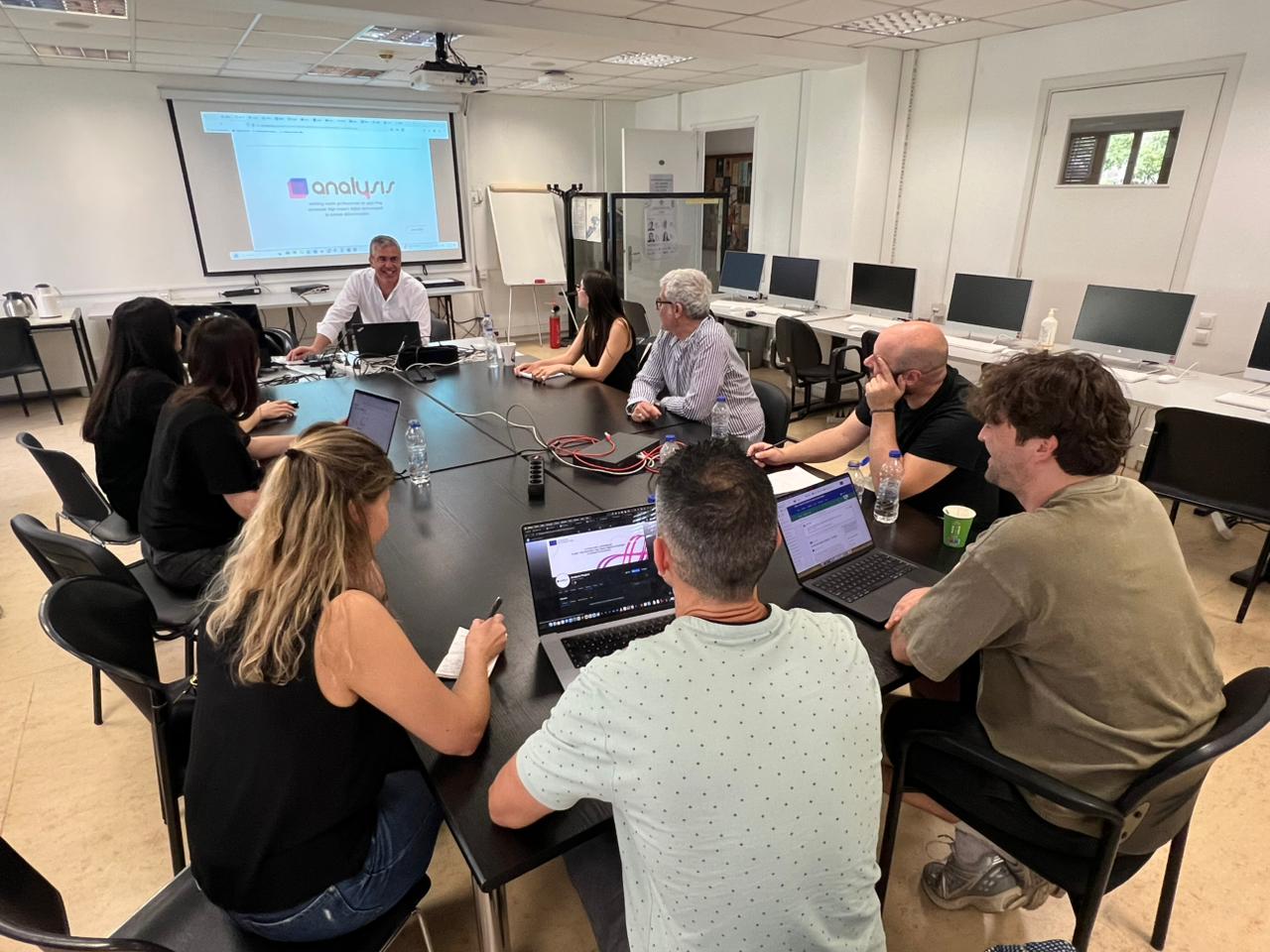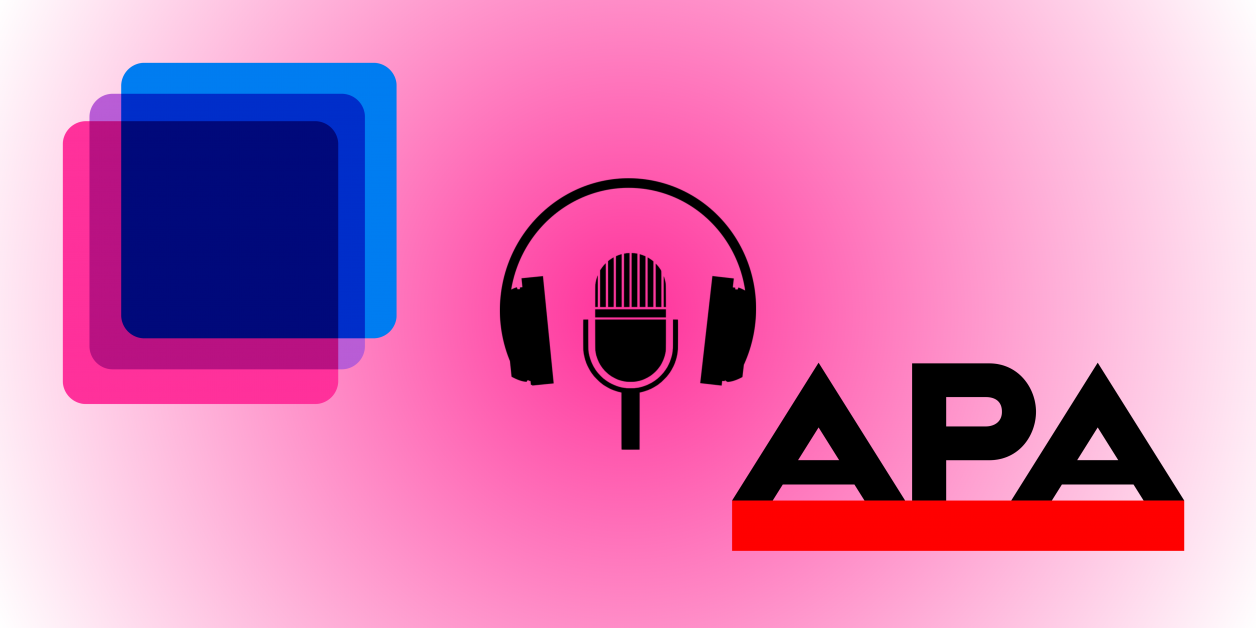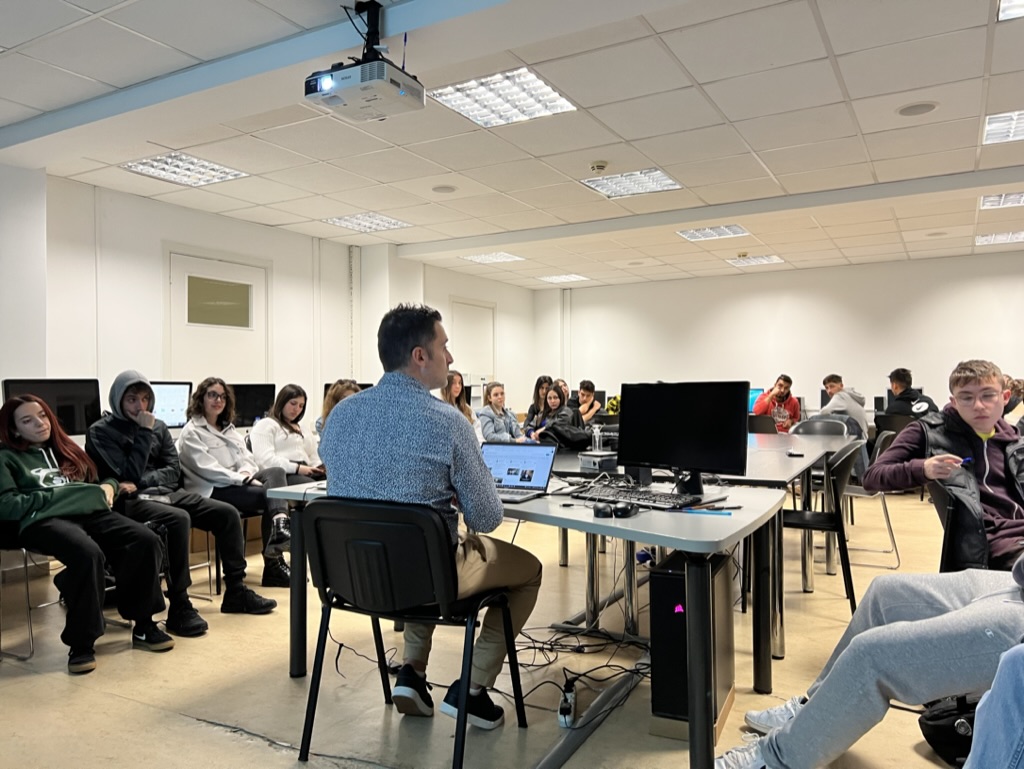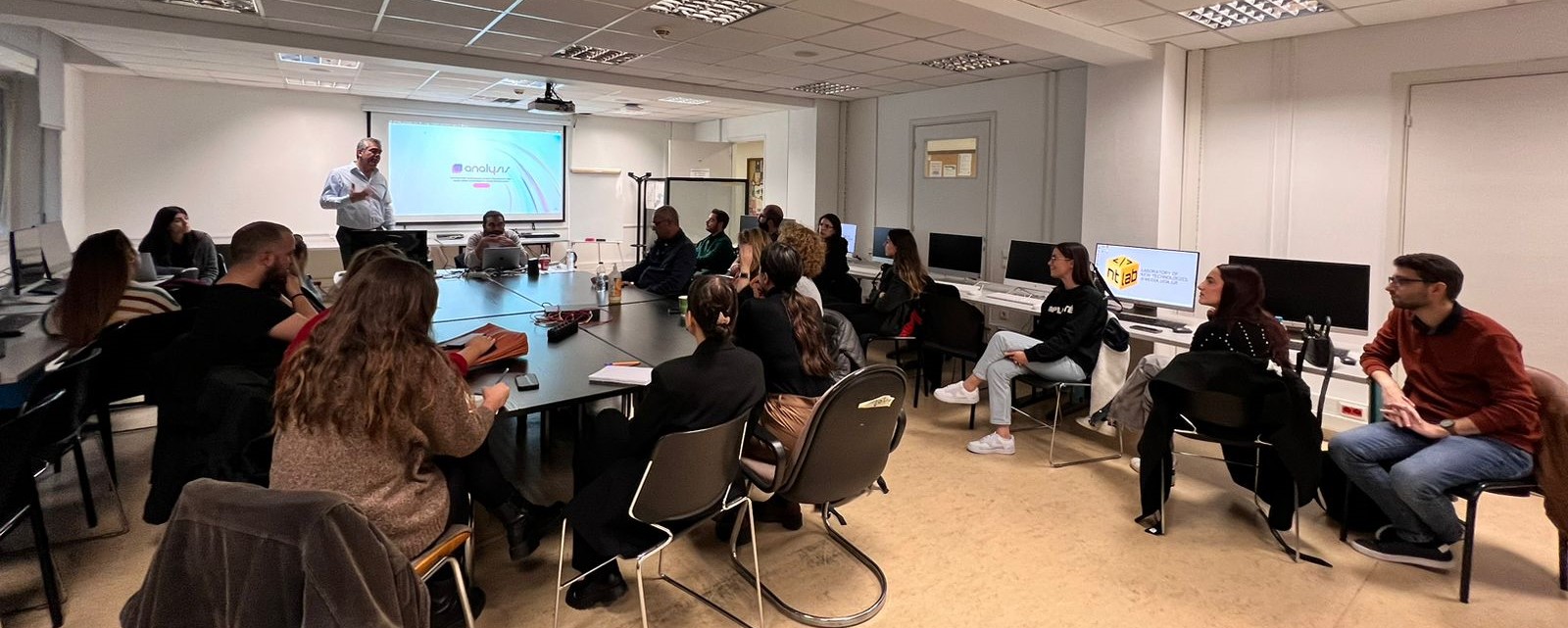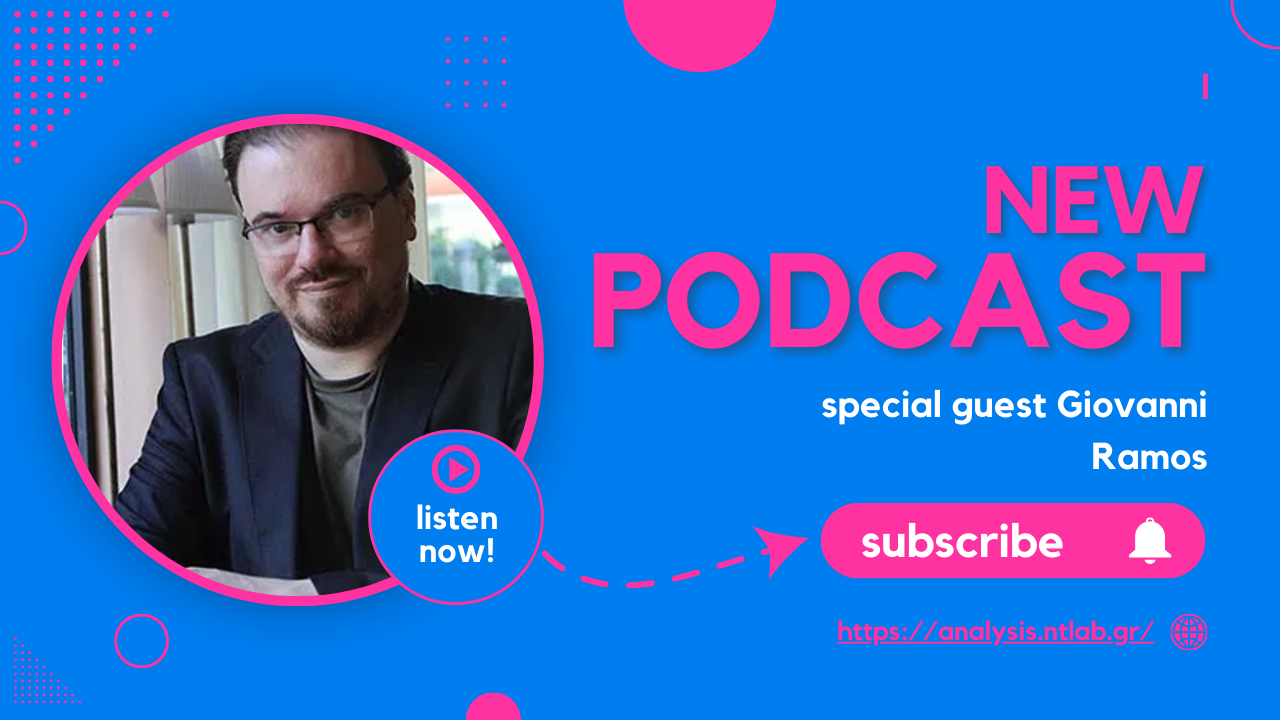The ANALYSIS project successfully concluded with a final meeting on Thursday, June 5th, in Athens. Academic partners and media representatives from Greece, Austria, and Portugal met to discuss the project results and review the feedback gathered through the Academy’s evaluation process.
To evaluate the effectiveness of the training, participants completed a pre-evaluation form to determine their initial levels of competence in the area of fact-checking and a post-evaluation following the completion of the ANALYSIS Academy. This dual assessment approach enabled a detailed comparison of learning outcomes and skill development.
The implementation of the ANALYSIS Fact-Checking Academy across Austria, Portugal, and Greece revealed both common trends and differences in competency growth. An analysis of the pre- and post-training data indicated the programme’s effectiveness while shedding light on regional variations in learning needs and outcomes.
Pre-training evaluations showed notable variations in baseline competencies across countries. Participants from Greece reported the highest initial readiness, with an average competency score of 4.6 in all areas. Portugal followed with 3.8, while Austria scored the lowest with around 3.2. Despite these differences, a common weakness was observed across all countries in OSINT (Open-Source Intelligence) research techniques, which received the lowest scores (Austria: 1.9, Portugal: 2.9, Greece: 3.5), highlighting a widespread gap in practical research skills in European newsrooms. In contrast, Fact-checking Methodology emerged as the strongest area, suggesting a general familiarity with theoretical frameworks (Austria: ~3.8, Portugal: 4.68, Greece: 5.22), but a need for more practical training.
Over the 6-week training programme, the Academy engaged up to 200 journalists, students, and researchers through a blended learning approach that combined in-person sessions with self-paced online modules. Post-course evaluations showed a significant increase in skill gains across all countries. Participants rated their competencies on a 7-point scale across seven fact-checking and verification areas.
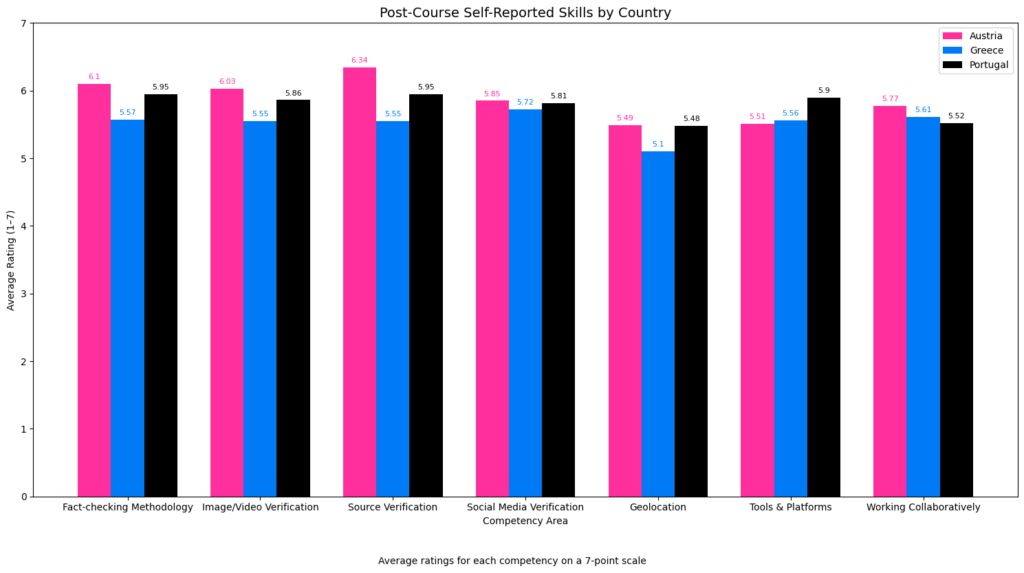
Austria reported the highest scores, ranging from 5.49 to 6.34, with high confidence in Source Verification (6.34) and Fact-checking Methodology (6.10). Portugal followed with good performance in all areas, with scores between 5.48 and 5.95, particularly in Fact-checking Methodology (5.95) and Image/Video Verification (5.86). Greece showed stable results, with scores between 5.10 and 5.72, especially in Social Media Verification (5.72) and Working Collaboratively (5.61). Overall, participants reached near-expert levels (5.5-6.5), highlighting the success of the programme in developing practical verification skills.
The ANALYSIS Fact-Checking Academy demonstrated remarkable success across all three participating countries, achieving its primary objective of strengthening European media professionals’ capabilities in combating disinformation. The findings of the evaluation validate the innovative methodology of the project, confirming its value as an effective model for future media literacy initiatives and the fight against disinformation across Europe.
